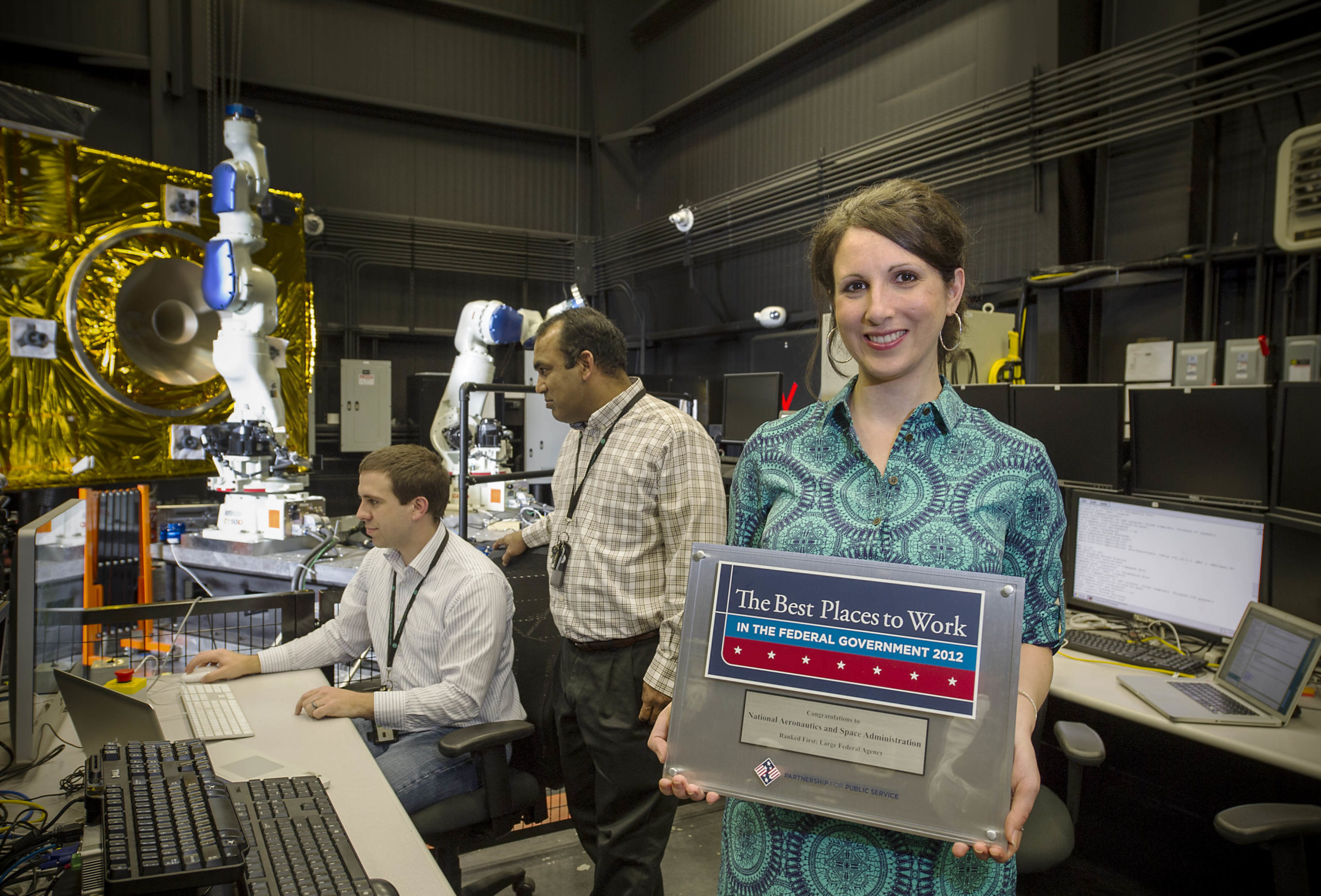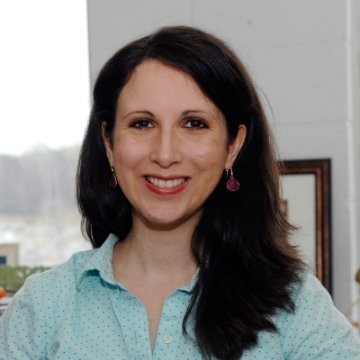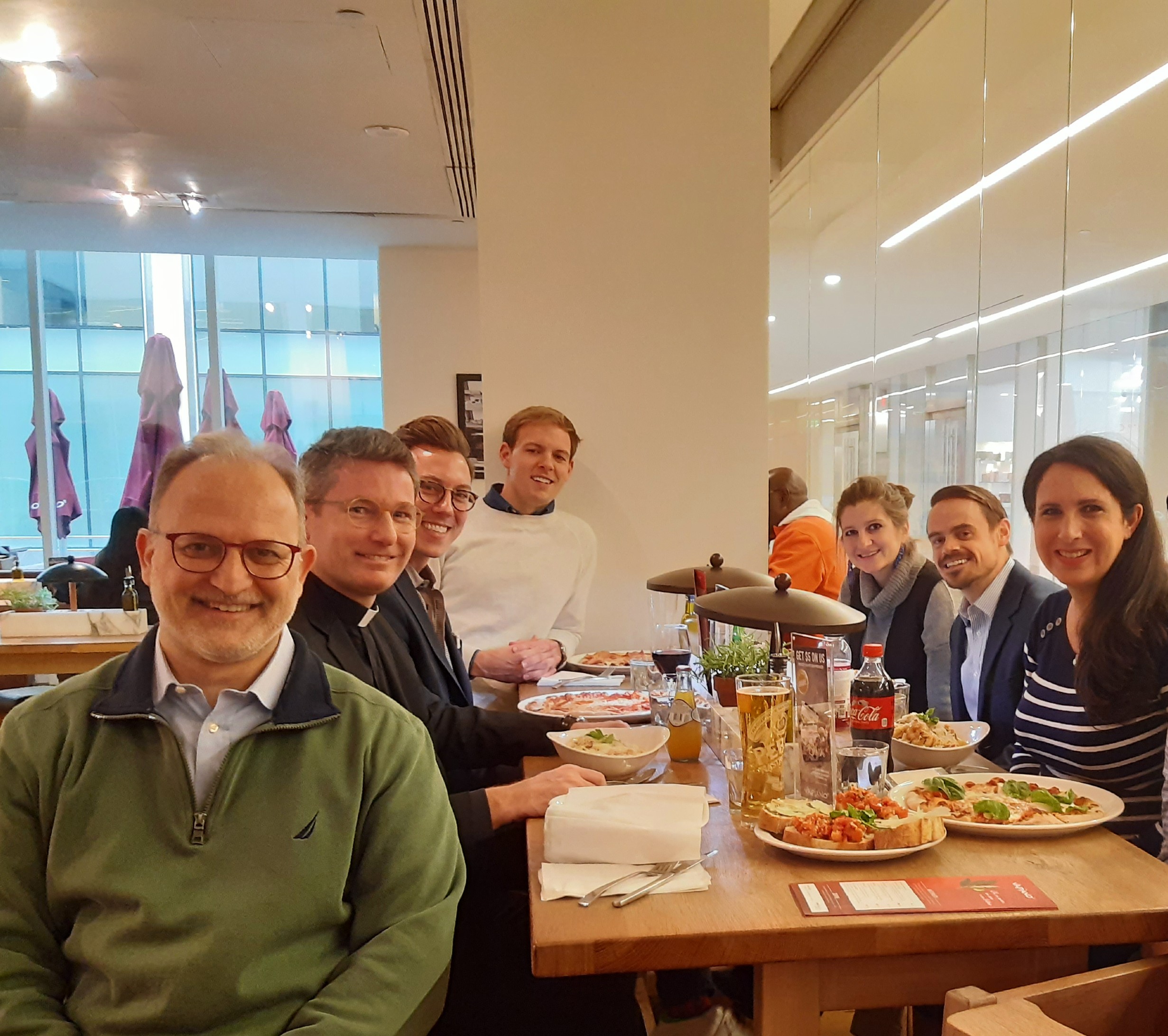
The Pontifical Universities not only train priests and nuns. They also train professionals who work in the field of communication not only in ecclesiastical institutions, but also in academic institutions. This is one of the objectives of the Pontifical University of the Holy Crossand especially of the Faculty of Social and Institutional Communication: to prepare people who work in radio, television, cultural entities or governmental and scientific organizations, as is the case of Adrienne Alessandro O'Brien.
After graduating from the School of Communication at the University of Holy Cross (between 2007 and 2008), Adrienne Alessandro O'Brien worked at NASA, the U.S. government's space agency, as the communications officer at the Goddard Space Flight Center (Goddard Space Flight Center). This is a NASA research laboratory that has the largest organization of scientists and engineers dedicated to expanding knowledge of the Earth, the solar system, and the universe via space-based observations within the United States and is instrumental in developing and operating unmanned scientific satellites and directing scientific research, space development and operations and many NASA and international missions, including the Hubble Space Telescope (HST), the Explorers program, the Discovery program, and many others.
Adrienne was born in 1983 in Wilmington, Delaware, into a Catholic family.
Faith and religious practice permeated our family's daily life. My mom took me to daily Mass and encouraged me to join her in praying the rosary. When my parents learned that the local public schools were introducing elements of sex education as early as first grade, they pulled me out to homeschool me, which was a pretty radical step for the early 1990s. Faith was something tangible for us. I was shy and sensitive as a child, much more comfortable observing others than telling my stories. With these personal characteristics, I once wondered if God was asking me to join a religious order.
And when did you understand more clearly that you were called to your mission as a wife, mother and communicator?
After many years of indecision about my vocation, and unfortunately after a time when I turned away from God, I finally found a place where I felt at peace: St. Peter's Basilica in Rome. I was in the Eternal City for a semester of studies. On one of the guided tours, I saw the resting place of St. Peter's bones: a man who had walked with Christ and embraced his Body. I thought that the first pope had understood the true meaning of vocation. He said yes to God again and again, even after he had denied him. So, I asked God (again) to end my vocational confusion. Immediately afterwards I felt a profound, literally otherworldly peace: I finally saw my vocation to marriage clearly illuminated and never had any doubts about it again.
After this experience in San Pedro, you returned to Washington, D.C.
Yes. I spent two years doing clerical work for political nonprofits in Washington, D.C. Endless hours making photocopies and booking co-workers' flights slowly choked the creativity in my soul. Professionally, I had always wanted to be a writer and communicator and now I was at a dead end. I wanted to do something that would impact the world. That's how I came to the Pontifical University of the Holy Cross.
Why did the University of Holy Cross catch your attention?
Fundamentally because I was in Rome, but the academic offerings of the School of Communication, the warmth and friendliness of the professors, in particular Professor Arasa and Professor La Porte, made me feel at home immediately. Academically, I loved that the Holy Cross program was so practical. I learned how to use a video camera, write commercial scripts, and edit audio files - I loved it all! The media training classes were my favorite because they challenged me to anticipate and explore arguments against the faith and create rational and appropriate responses. The friendships I made were irreplaceable. These are memories I will always treasure.
In addition, you discovered the universality of the Church in Rome.
Yes, and also its fragility. It was a turning point in my life when I asked myself: what could I do, on a personal level, to be a stronger and holier member of the Body of Christ and help heal this beautiful, broken Church? I still think about these questions to this day, especially in light of the sex abuse scandals around the world that have caused many others to question their faith. And I believe that the Pontifical University of the Holy Cross gave me the tools I need, personally and professionally, to help address it.
"I believe that when preached with honesty, understanding and conviction, the message of Christ remains fresh and compelling, even to young people, who are hungry for answers to life's most important questions."

Adrienne Alessandro O'Brien was born in 1983 in Wilmington, Delaware (USA). She is the mother of two young children and one on the way. After graduating from the School of Social and Institutional Communications at the Pontifical University of the Holy Cross (2007-2008), she worked at NASA, the U.S. government's space agency, as communications manager for the Goddard Space Flight Center. At one point in his life he asked himself: What can I do, on a personal level, to be a stronger and holier member of the Body of Christ and help heal this beautiful Church?
For her, women, with their unique (if not exclusive) ability to foster interpersonal relationships, play a key role. "But we all need support. We need strategic, engaging and outreach grassroots campaigns, supported by our bishops and leaders, to engage and catechize both the faithful and the far-flung," she says.
Did you work for NASA? Was it difficult for you as a woman and as a believer?
We were only a few coworkers, but I always felt incredibly respected and appreciated by my team. However, I was very self-conscious at first. I was working with men and women who had managed the missions to upgrade and repair the Hubble Space Telescope. They had just begun to develop technologies that would enable the refueling and repair of robotic satellites in orbit. What on earth could I offer these geniuses? I wondered
Explain to us how you developed your work
As time went on, I gained confidence in my abilities, both as a communicator and as a woman. As brilliant as my co-workers were, they needed someone who could capture their technical idea and communicate it in a way that "ordinary" people could understand. That was something I could do. I loved participating in strategy sessions, where I could help the team identify their target audience and formulate effective ways to reach them. I found that my people-oriented, person-centered background coupled with my feminine characteristics helped me intuit and identify some of the human issues and pitfalls the team would face, long before the tech-oriented team could recognize them.
What did you find most useful in your education at the University of the Holy Cross?
Two lessons have always stuck with me: First, earn trust and build a solid relationship with the executives on your team if you want to be a effective communicator and accurate. And second, always - always! keep your audience in mind. During my seven years at NASA, I created and executed communications campaigns for robotic experiments that were to be launched into orbit and operate on the International Space Station; designed the team's website from scratch; conducted media training sessions for television and written interviews; conceived and managed educational video productions; gave tours of our robotic facilities to politicians and scientists; and acted as a strategic public relations advisor to my team's senior leaders.
...and how did being Catholic help you?
For, throughout my career, my identity as a Catholic woman was fundamental, with the characteristics that our faith can add to any profession: kindness and consideration for the time and unique talents of others, respect, always working for the good of my team....
What I see in your human and professional history is a positive vision of what a Christian can do when he lives his faith well and truly in all aspects of his ordinary existence.
I do not see the Western and secularized world as an obstacle to evangelizing, especially to the youth. I believe that when preached with honesty, understanding and conviction, the message of Christ remains fresh and compelling, even to young people: a group hungry for answers to life's most important questions.
In your opinion, what is the greatest obstacle to evangelization?
I believe these are the crises that are growing within the Church itself. We cannot transmit what we do not have, and in many parishes and communities we have lost the true knowledge of our Catholic identity: who we are, what we believe and what it means to be Catholic in daily life. Today's generations of Catholics can no longer explain the basic teachings, including the Eucharist. We can either blame others or we can look inward and consider whether I, personally, have raised my voice lately to witness to Christ in the public square or with my neighbor.
Today we talk about the role of women in evangelization...
Each of us, in our daily interactions with others, is called to share faith. The womenwith their unique (if not exclusive) ability to foster interpersonal relationships and build community, have a critical role to play. But we all need support. We need strategic, engaging and outreach grassroots campaigns, supported by our bishops and leaders, to engage and catechize both the faithful and those furthest away. In particular, we need to be willing to talk to young people and get to know their challenges and their hearts. While young people may be skeptical or resistant to broad and impersonal messages, accompaniment is helpful in answering their questions and fostering an understanding of Christ's love and purpose in their lives.
"We should strive, as much as possible, to identify personal wounds and seek God's healing in our lives, either through accompaniment or therapy, especially in young people."

For Adrienne, the academic offerings of the Faculty of Communication at the Pontifical University of the Holy Cross are very complete, and especially "because it's in Rome!" she says. "The warmth and kindness of the professors, in particular Professor Arasa and Professor La Porte, made me feel immediately at home. Academically, I loved that the Holy Cross program was so practical. I learned how to use a video camera, write commercial scripts, and edit audio files - I loved it all! The media training classes were my favorite because they challenged me to anticipate and explore arguments against the faith and create rational and appropriate responses. The friendships I made were irreplaceable. These are memories I will always treasure."
Everything you say presupposes a greater awareness and responsibility on the part of Catholics....
Undoubtedly! None of these efforts will do as we address, for example, the sexual abuse crisis. So far, many have felt that the church's response has been inadequate. In the wake of new horrific stories, some U.S. dioceses have issued statements shrouded in protective, stale and evasive legal language: words that fail to capture the depths of repentance and atonement that our own Catholic faith demands. The nature and depth of these sins cry out and demand a humble and unconditional response. How can we claim to proclaim the Word of God when our own actions and public relations efforts fall so far short of embodying what God called us to do? Abandoning the purely legalistic mentality and returning to our authentic Catholic identity in handling this crisis will allow us to regain our credibility and proclaim Christ to a world that desperately needs our message.
The United States has been particularly affected by this plague. We are seeing an increasingly internally divided American society. Might this not be a good challenge for U.S. Catholics?
That's a really difficult question to answer, since also the U.S. Catholics are very divided on many issues, attacking each other on social networks and all in the name of... Jesus! And perhaps therein lies not only the root of the problem, but also a hint of the cure. In my opinion one of the most destructive elements of today's society is our collective addiction to mobile devices and social media platforms, and the resulting rudeness they foster. We are constantly entering a field of virtual indoctrination filled with secular conceptions and virtue-free responses, and many of us (myself included) often forget to put on the armor of Christ before going online.
Sometimes you have to close one, two, three, thousands of virtual doors to find a little peace.
Yes, and that is precisely why I believe our hope lies in reclaiming our Catholic identity beginning with these small victories on a personal level. Let us live the Gospel and remember our ultimate goal. When Christ described the final judgment, he did not mention political affiliation or verbally "destroying" someone in the networks. Rather, he said he would ask each of us: when did you feed me, give me to drink, house me, or clothe me? Our hearts would be much calmer if we could remember this before every encounter with a human being, even faceless strangers online. The virtues of humility, gentleness, understanding, charity: these are means that can transform our behavior and ultimately uplift society. Personal holiness may not be an instant solution, but exercising some additional graces is the most powerful tool we Catholics have to bring about change.
Besides your work, the most important thing for you is your family.
With two children under the age of three and one more on the way, my husband and I often feel like we are in survival mode! Yet, personally, in every interaction with my children, I try to remember that I am more than just a mother to them, that I can be two things: either their first and foremost experience of God's love, understanding and forgiveness; or, conversely, I can establish myself as a model of how a beloved authority can judge them harshly, punish them, break their spirit and betray their trust. Sometimes I wished I had been a mother in another era, a time when neighborhoods were safer, social contrasts weren't so stark and the porn-filled Internet didn't exist. But each decade has its own challenges and obstacles. I try to trust that God will give me the wisdom and words I need to shepherd these little ones through life to heaven.
Thank you for your testimonial. Any final message for our readers?
It has been a pleasure for me. If I could encourage one thing in general, it would be to strive, as much as possible, to identify personal wounds and seek God's healing in your life, either through accompaniment or therapy, especially in young people. God has given us both spiritual and "human" tools to be at peace. Let us take every opportunity to be healthy and whole people so that we can respond appropriately to his call and share his love with others.
Thank you very much, Adrienne.
It is very nice to continue to celebrate with stories like this one the 25th anniversary of the Faculty of Social and Institutional Communication of our University, a Faculty that Blessed Alvaro del Portillo insisted on having and that would not have been possible without the contributions of all the friends and benefactors of CARF. St. Philip Neri used to say: "He who does good to Rome, does good to the world". And with the stories of our students and former students we realize more and more this truth: the smallest contribution of our friends and benefactors has helped our students to bring not only a good formation around the world, but a true human and Christian wisdom, which is what the world needs.
Gerardo Ferrara
BA in History and Political Science, specializing in the Middle East.
Responsible for the student body
University of the Holy Cross in Rome